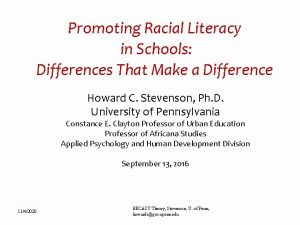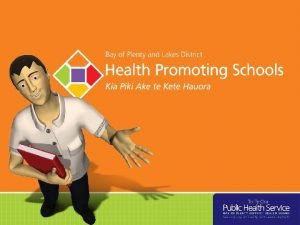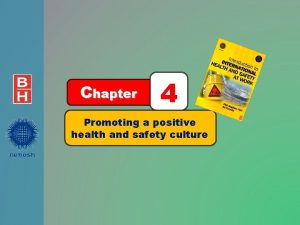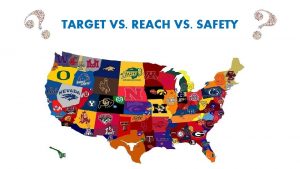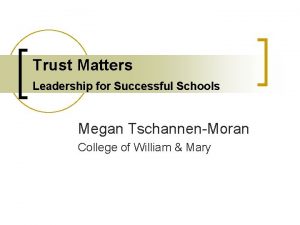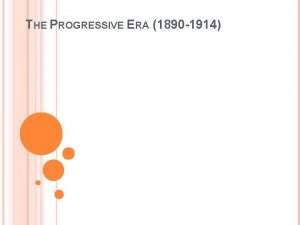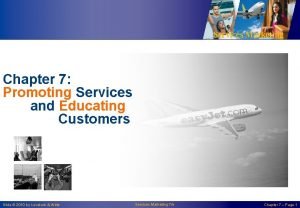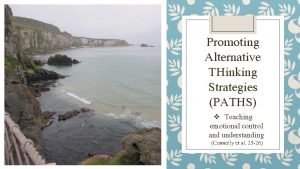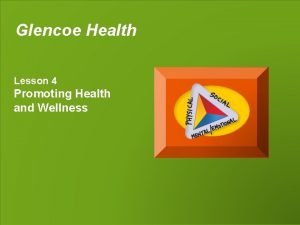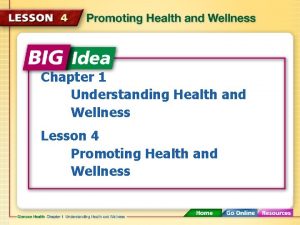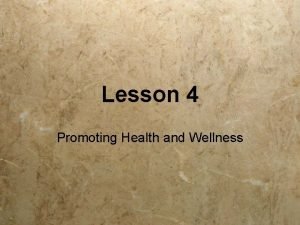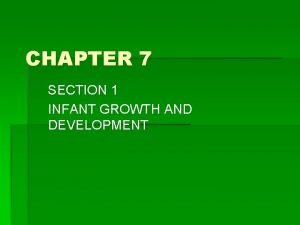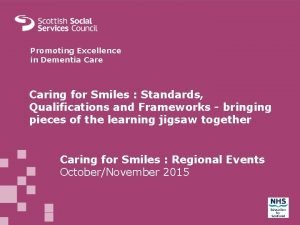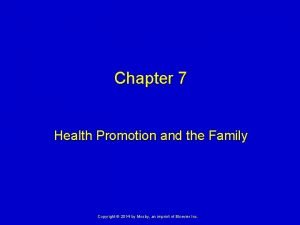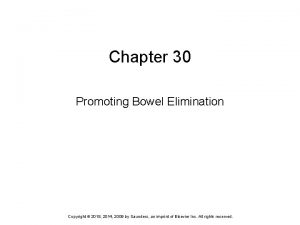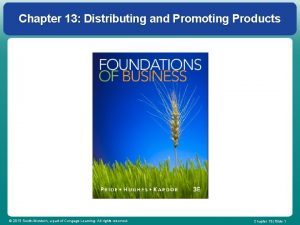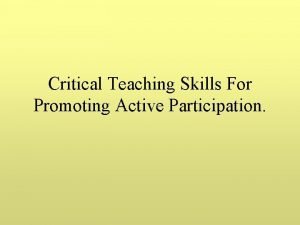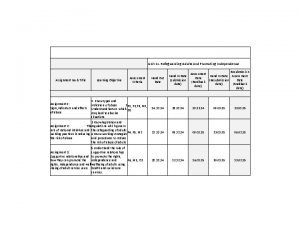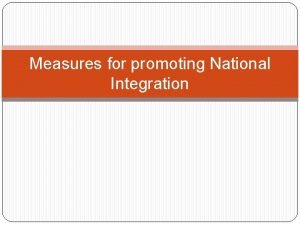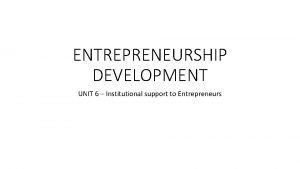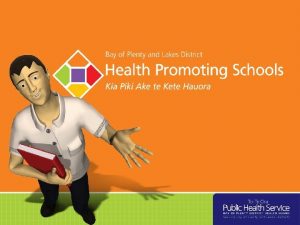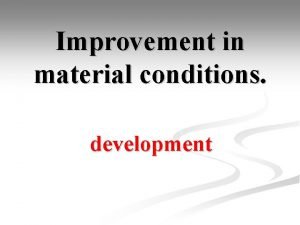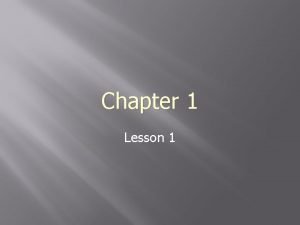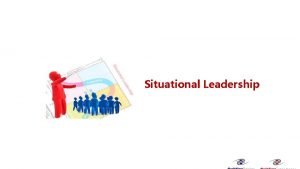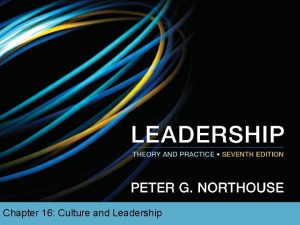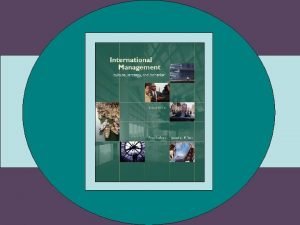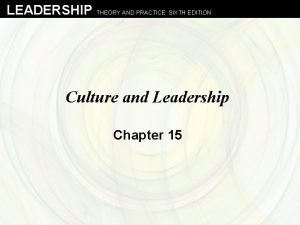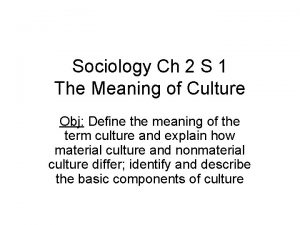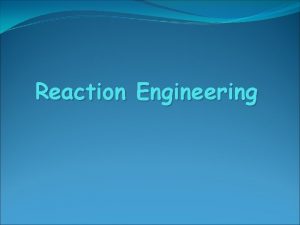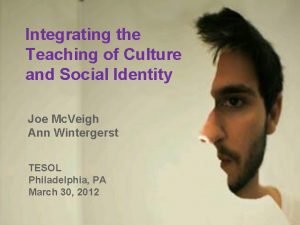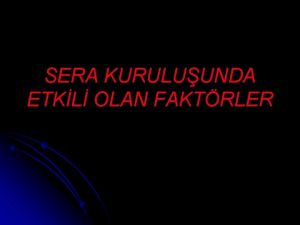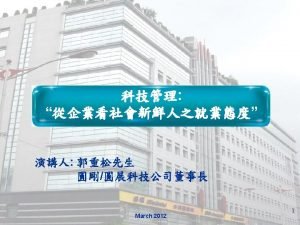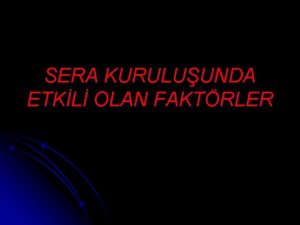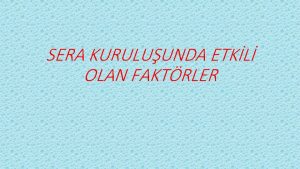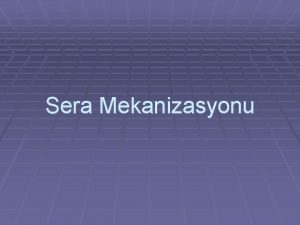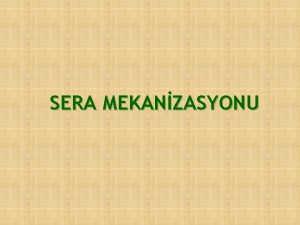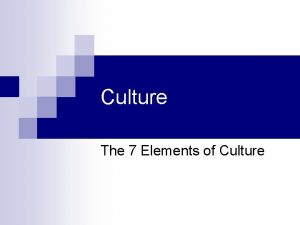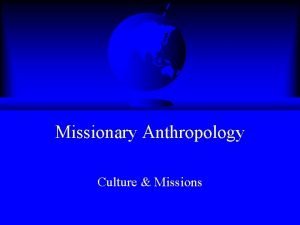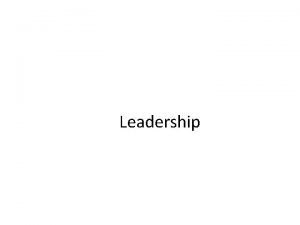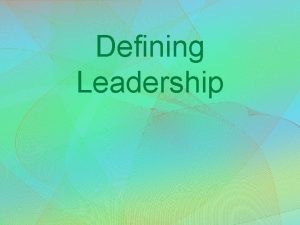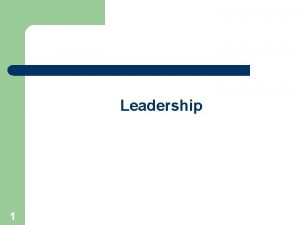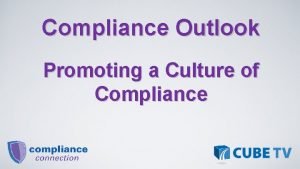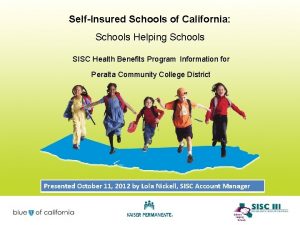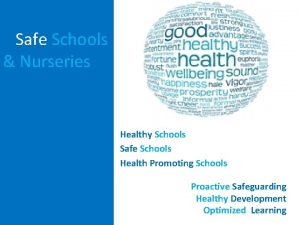Promoting a Research Culture in Schools SERA Leadership








































- Slides: 40

Promoting a Research Culture in Schools SERA Leadership in Education Network 25 th April 2015 Kenneth Muir Chief Executive, GTCS

Teachers as researchers “The resurgence of interest in. . “teacher research” over the last decade is aligned with the popular advocacy of “evidencebased” or “best practice” within public policy communities and specific calls for “teaching as a research-based profession” (Hargreaves 1996)”. Teachers as researchers: initial experiences within the Scottish “Schools of Ambition” Hulme, Lowden and Elliot (2009)

Teachers as researchers “From the late 1990 s, the development of closer relationships between the practitioner and academic communities has been strongly encouraged across the UK, following criticism of the value and relevance of educational research for both policy makers and teachers” Teachers as researchers: initial experiences within the Scottish “Schools of Ambition” Hulme, Lowden and Elliot (2009)

The value and relevance of educational research

Teachers as researchers “Collaborative enquiry has been associated with the democratising of research relations, the promotion of collegial practices and the encouragement of participatory decision making in schools. . Proponents of teacher research have argued that conventional “outsider” research contributes to the disenfranchisement of teachers. . Teacher research is aligned with a commitment to move from “communities of practice” towards “professional learning communities. ” Teachers as researchers: initial experiences within the Scottish “Schools of Ambition” Hulme, Lowden and Elliot (2009)

Teachers as researchers Teachers should be: “Increasingly expert practitioners whose professional practice and relationships are rooted in strong values, who take responsibility for their own development and who are developing their capacity both to use and contribute to the collective understanding of the teaching and learning process. ” “Teaching Scotland’s Future” 2011

Teachers as researchers “ The most successful education systems invest in developing their teachers as reflective, accomplished and enquiring professionals who are able, not simply to teach successfully in relation to current external expectations, but who have the capacity to engage fully with the complexities of education and to be key actors in shaping and leading educational change”. “Teaching Scotland’s Future” 2011

Promoting a Research Culture in Schools • • • 8 schools (4 primary; 3 secondary; 1 special) and 2 colleges “What are your views on teachers as researchers? ” “To what extent is engagement with research actively encouraged in your school/college? ”

“What are your views on teachers as researchers? ” “ You’re kidding. I haven’t enough time to do the day job as it is. ” “ I don’t think that’s what teachers do. . . It’s more for universities to do research. ” “ It depends on what you mean by “research” but if you mean experimenting with things in my class, then I do it every day. . . it’s how I can improve things. I suppose that’s a kind of research, isn’t it?

“To what extent is engagement with research actively encouraged in your school/college? ” “ You’re kidding. . . ” “ We have monthly “learning lunches” at which we focus on a piece of recent research (usually chosen by the HT) and we talk about it. ” “ Colleges don’t do research. Universities do research!”


. . we have a problem. . Confusion and uncertainty as to what constitutes “research” Teachers being left to try and understand make sense of the concept of “teachers as researchers” Whose role is it to lead (or is it manage? ) the promotion of a research culture in schools?

Interpretations of “research” • • Academic research inaccessible; removed from reality; abstract Applied research reports (research digests and briefings) – helpful as summaries Research-informed policy texts (policy and guidance documents) - digestible The “enquiring teacher” – constantly engaging in reflection and “tinkering” Teachers as researchers: initial experiences within the Scottish “Schools of Ambition” Hulme, Lowden and Elliot (2009)

“The Research Delusion” Dylan Wiliam “ The desire for teaching to become a research-based profession is a noble one, but ultimately it will not achieve the result its advocates want. Instead we need to focus on teacher expertise, of which research is one of many parts. We need to support current teachers to improve their practice and inform their judgement. ”

“The Research Delusion” Dylan Wiliam “Teachers should seek to improve their practice through careful reflection. They need to explore different ways of meeting the needs of their students and try to evaluate (to the extent that this is possible) whether new approaches are more successful than previous ones. ”

“The Research Delusion” Dylan Wiliam “ We also need to accept that teachers improve in different ways. Some teachers may wish to share their work with colleagues at conferences or professional development sessions. . but. . . some may feel their time is better spent in other ways. Some may wish to prepare their findings for publication; others may wish to pursue degrees and publish their work in research journals. These are all worthwhile activities with equal footing. ”

Interpretations of “research” 1. 2. 3. 4. Academic research Applied research reports Research-informed policy texts The “enquiring teacher” “Supporting professional learning through systematic self-study”

GTCS: Using Professional Standards to support Professional Learning • The Standards for Registration (mandatory, comprising the SPR and the SFR) • The Standard for Career-long Professional Learning • The Standards for Leadership and Management (for middle leaders and Head Teachers) Professional Skills and Abilities Professional Knowledge and Understanding Professional Values (social justice, integrity, trust and respect ) and Personal Commitment

Professional Standards “Professional Standards have significant potential to provide the necessary provocation for teachers to think about their work, practice and professional identity in quite fundamentally, different and generative ways. ” Sachs J (2010)

Research and GTCS Standards

Research and GTCS Standards

Professional Standards and Career -Long Learning “If Standards are to become the basis for promoting high quality professional learning, they need to be regarded as a series of signposts to guide an integrated professional learning agenda, rather than a series of discrete accomplishments to be ticked. ” Timperley (2011)

Professional Update SLM SFR SPR SCLPL SFR Provisional Registration Full Registration ITE TIS FR Professional Review + Devt. (General) • Entry Memorandum & Guidelines • Registration • Dual • Teaching Qualifications Registration • Qualified Outside Scotland The Enquiring Professional Recognition Professional Qualifications & Professional Registration

GTCS: Supporting Professional Learning EBSCO – online access to 1700 educational journals + e-books Research Engagement Group – developing and trialling teacher engagement with EBSCO Education Hub

EBSCO




Recommended Research and Reading



GTCS: George D Gray Award

GTCS: Supporting Professional Learning through Professional Update � Self-evaluation and critical reflection processes � Experiential, action or enquiry-based learning � Professional dialogue with colleagues, other professionals, parents, and learners � Focused professional reading and research � Leading or engaging in practitioner enquiry/action research � Critical analysis of reading, learning and impact on professional practice � Learning about aspects of the curriculum or pedagogical practice � Peer support e. g. coaching or mentoring � Classroom visits/peer observation � Online learning/blogs

GTCS: Supporting Professional Learning • Teacher Education Teachers' Workshops The Teacher Education Teachers’ Work (TETW) Research network: a partnership between the University of Strathclyde and the University of Glasgow with the GTC Scotland. • Teacher Researcher Programme

GTCS: Supporting Professional Learning through Professional Recognition provides the opportunity for those who are fully registered with the GTCS and have completed one year of professional practice to focus on and develop their professional learning in particular areas of expertise and gain recognition for enhancing their knowledge, understanding and practice.

Examples of successful PR applications � Developing education for global citizenship � Supporting Pupil Learning: The Reflective Thinking Programme � Education and care of children and young people on the autistic spectrum � Leadership: Improving attainment of lowest performing 20% � Outdoor Scheme Learning: Duke of Edinburgh Awards



Questions • • What constitutes a “research culture” – what might it look like? How can national bodies and the research community best support teachers to access, communicate, use and interpret research? How do we ensure that educational and leadership research is of value and relevance for both policy makers and practitioners? How do we best foster collaborative approaches to the development of research into leadership and leadership development?

GTC Scotland ken. muir@gtcs. org. uk Twitter @GTCSKen
 Promoting racial literacy in schools
Promoting racial literacy in schools Health promoting schools model
Health promoting schools model Promoting a positive health and safety culture
Promoting a positive health and safety culture Huntsville cs powerschool
Huntsville cs powerschool Safety target reach schools
Safety target reach schools Trust matters leadership for successful schools
Trust matters leadership for successful schools When was the progressive era? *
When was the progressive era? * Promote service arrange decide
Promote service arrange decide Promoting alternative thinking strategies
Promoting alternative thinking strategies Lesson 4 promoting health and wellness
Lesson 4 promoting health and wellness Do. 27 s. 2015 promoting family earthquake preparedness
Do. 27 s. 2015 promoting family earthquake preparedness Chapter 1 lesson 4 promoting health and wellness
Chapter 1 lesson 4 promoting health and wellness Lesson 4 promoting health and wellness
Lesson 4 promoting health and wellness Philip curry business
Philip curry business Promoting infant health section 7-2
Promoting infant health section 7-2 Promoting excellence in dementia care
Promoting excellence in dementia care Deontology ethics example
Deontology ethics example Chapter 7 promoting health and wellness
Chapter 7 promoting health and wellness Promoting bowel elimination
Promoting bowel elimination Chapter 13 distributing and promoting products
Chapter 13 distributing and promoting products Promoting services and educating customers
Promoting services and educating customers Promoting active participation
Promoting active participation Unit 11 safeguarding adults and promoting independence
Unit 11 safeguarding adults and promoting independence National integration and international understanding
National integration and international understanding Role of support institutions include
Role of support institutions include Health promoting school
Health promoting school Japan's principal asset for promoting development was
Japan's principal asset for promoting development was Chapter 1 lesson 4 promoting health and wellness
Chapter 1 lesson 4 promoting health and wellness Transactional leadership
Transactional leadership Adaptive leadership
Adaptive leadership Adaptive leadership vs situational leadership
Adaptive leadership vs situational leadership Culture and leadership northouse
Culture and leadership northouse Leadership across culture
Leadership across culture Culture and leadership northouse
Culture and leadership northouse What is cultural divergence
What is cultural divergence Individual culture traits combine to form culture patterns.
Individual culture traits combine to form culture patterns. Batch culture vs continuous culture
Batch culture vs continuous culture Continuous culture and batch culture
Continuous culture and batch culture Individualistic culture vs. collectivist culture
Individualistic culture vs. collectivist culture Indian vs american culture
Indian vs american culture Stab and stroke culture
Stab and stroke culture
